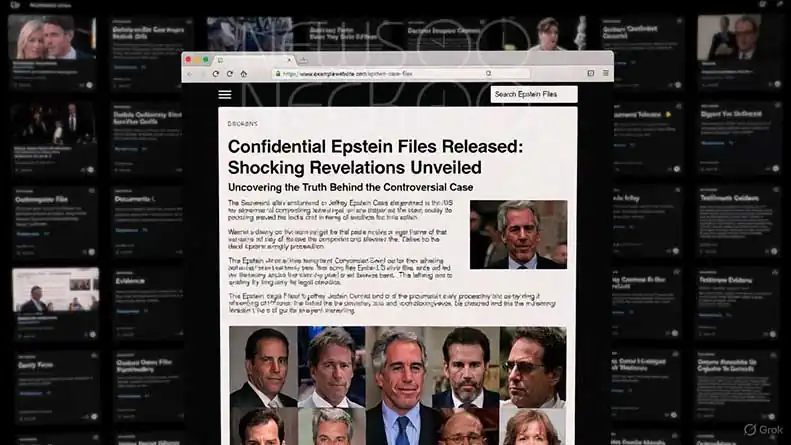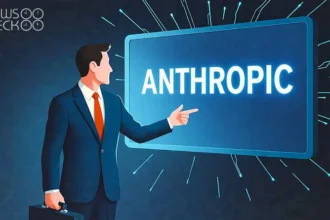In a rare moment of unity, Congress voted overwhelmingly to release documents the government had fought for months to keep secret. The story of how they got there reveals everything about power, pressure, and politics in America.
For months, President Donald Trump called it a “Democrat hoax.” He dismissed the growing outcry. He fought against releasing the files. He insisted there was nothing to see.
Then, over a weekend, he changed his mind.
On Tuesday, the United States Senate voted unanimously—every single senator agreeing—to force the release of investigative files related to Jeffrey Epstein, the financier and convicted pedophile who died in federal custody in 2019 under circumstances that remain disputed.
Hours earlier, the House of Representatives had voted 427 to 1 for the same measure. Only one member of Congress, out of 428 who voted, opposed transparency.
By Wednesday, the bill will land on Trump’s desk. He has promised to sign it. And when he does, documents that powerful people worked hard to keep hidden will become public.
This is the story of how that happened. It’s a story about survivors who wouldn’t be silenced, politicians who felt the heat from their constituents, and a president who discovered that some fights aren’t worth having.
The Scandal That Wouldn’t Go Away
Jeffrey Epstein’s name has haunted American power circles for years. The wealthy financier cultivated relationships with presidents, princes, scientists, and celebrities. He flew them on his private jet. He entertained them at his properties in Manhattan, Palm Beach, and a private island in the Caribbean.
He was also, as court documents and victim testimony established, a sexual predator who abused dozens of underage girls, some as young as fourteen.
In 2008, Epstein pleaded guilty to soliciting prostitution from an underage girl in Florida. He served just thirteen months in a county jail under a work-release program that allowed him to leave custody six days a week. The plea deal, arranged by then-US Attorney Alexander Acosta, has been called one of the most lenient sentences for a serial sex offender in American legal history.
Epstein continued his life among the elite. The powerful men who’d befriended him mostly stayed silent.
Then, in 2019, new federal charges caught up with him. He was arrested on sex trafficking allegations involving minors. A month later, he was found dead in his Manhattan jail cell. The official cause: suicide. Many people, across the political spectrum, doubted that explanation.
The questions multiplied: Who knew what about Epstein’s crimes? Who enabled him? Who looked the other way? And what did the government know that it wasn’t telling?
The Files the Government Kept Secret
For years, investigative files related to Epstein remained locked away. The FBI had investigated him. Other federal agencies had information. But the documents stayed classified, hidden from public view under various claims of privacy, ongoing investigations, and national security.
Survivors—the women who’d been abused as girls—demanded answers. They wanted to know who’d been complicit. They wanted accountability. They wanted the truth.
Congress, historically, showed little interest in forcing the issue. Powerful people were implicated. Releasing the files could embarrass members of both parties, donors, and allies.
But something changed when Trump returned to the White House. The scandal, which had simmered for years, reached a boiling point.
When Trump’s Base Turned on Him
Donald Trump has survived countless controversies that would have ended other political careers. But the Epstein files presented a different kind of problem: his own supporters were demanding action.
Marjorie Taylor Greene, the Republican congresswoman from Georgia and typically one of Trump’s most loyal defenders, broke with the president over this issue. On Tuesday, after the vote, she posted on X: “Americans are done being lied to. These survivors deserve full transparency. Every document, every truth, every name.”
When your most ardent allies start publicly disagreeing with you, it’s time to recalculate.
Trump had spent months calling the controversy a “Democrat hoax.” He suggested his political opponents were weaponizing the Epstein case to damage him. He urged Republicans to focus on other priorities.
But his base wasn’t listening. Conservative voters flooded congressional offices with demands for transparency. Republican lawmakers, many of whom face reelection in 2026, felt the pressure. They couldn’t ignore their constituents on this issue.
Over the weekend, Trump relented. He announced on Truth Social that Republicans should support the bill. He tried to frame it as a distraction from his administration’s victories, but the message was clear: he was backing down.
The Unlikely Alliance
The bill forcing release of the Epstein files was sponsored by two congressmen who rarely agree on anything: Ro Khanna, a progressive Democrat from California, and Thomas Massie, a libertarian-leaning Republican from Kentucky.
Their bipartisan cooperation on this issue illustrates something important: when public pressure is strong enough, even a divided Congress can act.
The House vote of 427-1 was stunning. In an era when Congress can barely agree on naming post offices, this near-unanimous support showed that some issues transcend partisan politics.
The Senate, often slower and more cautious, moved with unusual speed. Senate Majority Leader John Thune told reporters the bill would be on Trump’s desk by Wednesday.
When Trump signs it—and sources say he will—years of secrecy will end. The investigative files will become public. Names will be revealed. Connections will be exposed.
The Fallout Has Already Begun
Even before Trump’s signature makes the release official, consequences have started.
The New York Times announced it would cut ties with Larry Summers, the former Treasury Secretary under President Clinton and director of the National Economic Council under President Obama. Documents already made public by House members showed that Summers maintained a friendly relationship with Epstein long after the financier’s 2008 conviction for soliciting an underage girl.
Summers is just one name. The full files will likely reveal many others who stayed close to Epstein despite knowing—or having reason to know—about his crimes.
What the Survivors Achieved
Congressman Khanna, in his statement on Tuesday, credited the survivors for this victory. “Against all odds, the survivors kept fighting,” he said. “This victory is theirs.”
He urged Trump to invite survivors to the bill signing ceremony, giving them recognition for forcing the government’s hand.
For years, these women were dismissed, disbelieved, or paid off quietly. They were told their stories didn’t matter, that powerful men were more important than their suffering. They were offered settlements in exchange for silence.
They refused to stay silent.
Through lawsuits, interviews, and relentless advocacy, they kept Epstein’s crimes in the public eye. They demanded accountability when the justice system seemed designed to protect the wealthy and connected. They pushed until Congress had no choice but to act.
This is how change happens in America. Not through the goodness of politicians’ hearts. Not because powerful people suddenly develop consciences. But because ordinary people—or in this case, extraordinary survivors—refuse to accept injustice.
They fought, and they won.
What Comes Next
The Epstein files will soon be public. We’ll learn who knew what and when. We’ll see how deep the connections went between a convicted sex offender and America’s elite. We’ll discover whether the government failed to act, or actively covered up, or simply looked the other way.
Some powerful people will be embarrassed. Some may face legal consequences. Some will deny, deflect, and lawyer up.
But the truth, hidden for so long, will finally see daylight.
And that happened because survivors demanded it, voters insisted on it, and politicians—for once—listened.
Based on congressional proceedings and statements from November 18-19, 2025.












